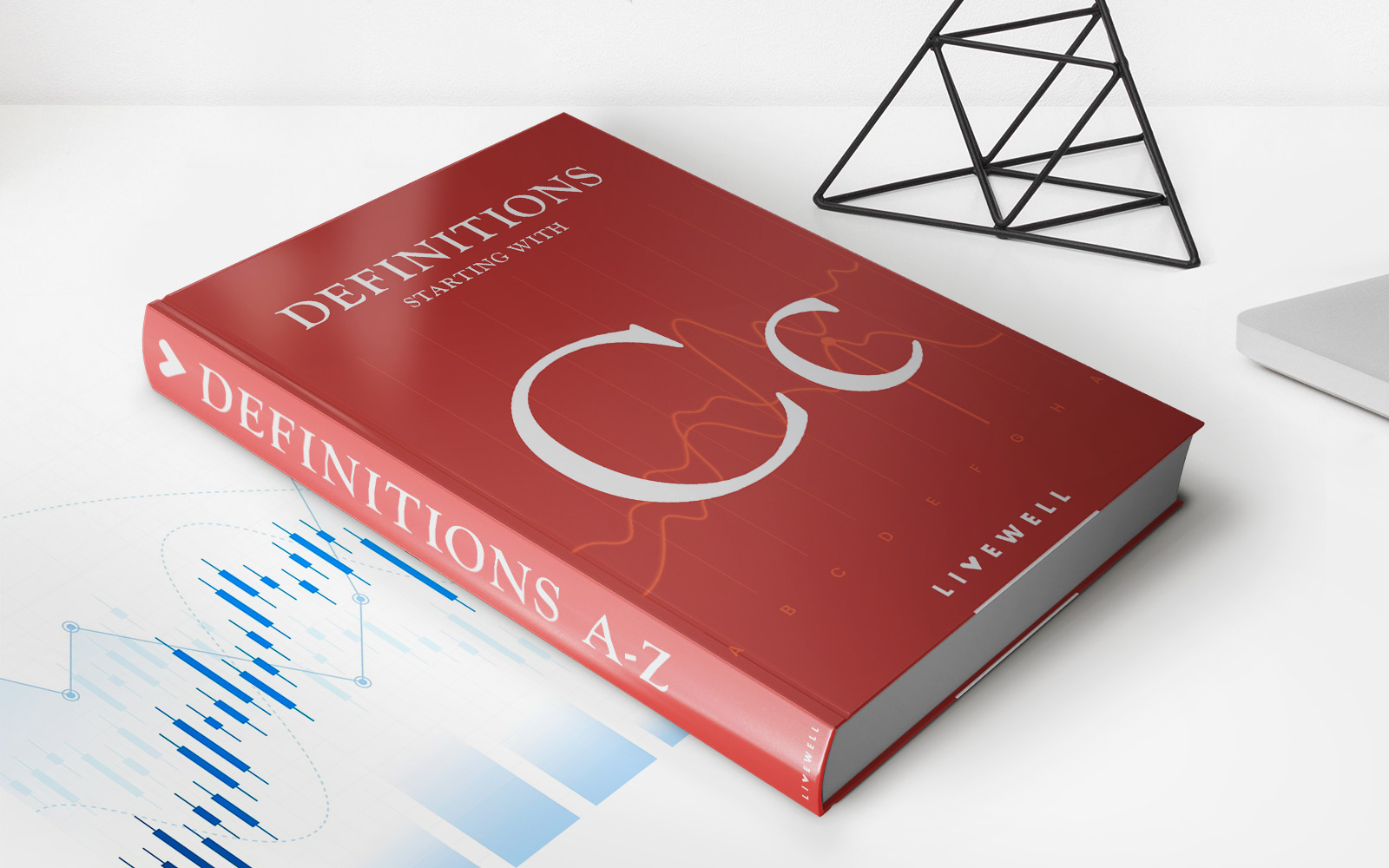

Finance
Does Your Credit Go Up When You Pay Off A Car
Published: January 13, 2024
Improve your credit score and manage your finances by paying off your car loan. Discover how paying off your car affects your credit and financial situation.
(Many of the links in this article redirect to a specific reviewed product. Your purchase of these products through affiliate links helps to generate commission for LiveWell, at no extra cost. Learn more)
Table of Contents
Introduction
When it comes to managing your finances, understanding how certain actions impact your credit score is crucial. One financial decision that often raises questions is paying off a car loan. Many people wonder if their credit score will go up when they make the final payment on their car. While paying off a car loan can have a positive impact on your credit score, the extent of the improvement will depend on various factors.
Credit scores play a significant role in determining an individual’s financial health and credibility. Lenders use credit scores to assess the likelihood of borrowers repaying their loans on time. A higher credit score can open doors to better interest rates and loan opportunities, while a lower score may limit your options or result in higher borrowing costs.
Before exploring the relationship between paying off a car loan and credit scores, let’s first gain a better understanding of how credit scores work and the factors that influence them.
Understanding Credit Scores
Credit scores typically range from 300 to 850, with a higher score indicating better creditworthiness. These scores are calculated using various factors, including payment history, credit utilization, length of credit history, credit mix, and new credit inquiries. Each factor carries a different weight, and changes in any of them can affect your credit score.
Impact of Car Loans on Credit Scores
When you take out a car loan, it becomes part of your credit history. This installment loan is viewed differently from revolving credit, such as credit cards. Credit reporting agencies consider the mix of credit types in your history when calculating your credit score. Having a mix of installment loans and revolving credit can be beneficial for your score, as it demonstrates your ability to handle different types of debt.
Car loans also contribute to your credit utilization ratio, which measures the amount of credit you’re using compared to your total available credit. Lower credit utilization is generally seen as a positive sign, as it indicates responsible borrowing habits. However, the impact of car loans on your credit utilization will diminish over time as you make regular payments and reduce the loan balance.
Understanding Credit Scores
Credit scores are numerical representations of an individual’s creditworthiness. They provide lenders with a quick assessment of an individual’s ability to repay debts and manage finances responsibly. A higher credit score indicates a lower risk of defaulting on loans, making individuals more attractive to lenders. On the other hand, a lower credit score suggests a higher risk of default and may result in higher interest rates or difficulty in obtaining credit.
The most common credit scoring model used by lenders is the FICO Score, developed by the Fair Isaac Corporation. FICO Scores range from 300 to 850, with higher scores indicating better creditworthiness. However, it’s important to note that different lenders may have varying criteria and weightings when assessing creditworthiness.
The factors that affect your credit score can be divided into five main categories:
- Payment History: This is the most significant factor, accounting for approximately 35% of your credit score. It considers whether you have made timely payments on your debts and any history of late or missed payments.
- Credit Utilization: This factor accounts for around 30% of your credit score. It measures the amount of credit you’re currently using compared to your total available credit. It’s generally recommended to keep your credit utilization below 30% to maintain a good score.
- Length of Credit History: The length of time you have been using credit is also important. Having a longer credit history demonstrates your ability to manage credit responsibly, and this accounts for about 15% of your credit score.
- Credit Mix: A diverse mix of credit types, such as credit cards, mortgages, and auto loans, shows that you can handle different types of debt. Credit mix accounts for approximately 10% of your credit score.
- New Credit Inquiries: Applying for new credit can have a temporary negative impact on your score, as it suggests an increased risk of taking on too much debt. This factor constitutes about 10% of your credit score.
Understanding these factors is essential for managing your credit effectively and improving your credit score over time. While paying off a car loan can positively impact your credit, it is just one piece of the puzzle. It’s important to have a holistic approach to maintaining good credit by consistently making timely payments, keeping credit card balances low, and managing credit responsibly overall.
Impact of Car Loans on Credit Scores
Car loans can have both positive and negative impacts on your credit score, depending on how you manage them. When you first take out a car loan, it will show up as a new account on your credit report. This can initially cause a slight drop in your credit score due to the addition of new debt and a potential increase in credit inquiries.
However, over time, a well-managed car loan can actually have a positive impact on your credit score. One way a car loan can improve your credit is by contributing to the diversity of credit types in your credit history. Having a mix of installment loans, such as a car loan or a mortgage, and revolving credit, like credit cards, can be seen as a positive indicator of creditworthiness.
Car loans also play a significant role in your credit utilization ratio. This ratio measures the amount of credit you’re using compared to your total available credit. By making regular payments on your car loan, you reduce the loan balance, which in turn lowers your credit utilization ratio. A lower credit utilization ratio is generally seen as a positive sign, as it indicates responsible borrowing habits and can help improve your credit score.
Additionally, consistently making on-time payments for your car loan shows lenders that you are reliable and trustworthy, which can have a positive impact on your credit score. Payment history is the most influential factor in determining your credit score, so demonstrating a pattern of timely payments is crucial.
However, it’s important to note that late or missed payments can have a detrimental effect on your credit score. Payment history accounts for a significant portion of your credit score, so any negative marks on your car loan, such as delinquencies or defaults, can severely impact your creditworthiness.
In summary, while car loans can initially cause a slight dip in your credit score, they have the potential to positively impact your credit over time. By diversifying your credit mix, reducing your credit utilization ratio, and making on-time payments, you can strengthen your creditworthiness and improve your overall credit score.
Does Paying Off a Car Loan Improve Your Credit?
When it comes to paying off a car loan, many individuals wonder if it will lead to an automatic improvement in their credit score. While it is generally positive to pay off any outstanding debts, the impact on your credit score may not always be as straightforward as expected.
Paying off a car loan can certainly have some positive effects on your credit score. One of the most immediate benefits is the reduction in your overall debt. By eliminating a car loan, your credit utilization ratio will decrease, which can have a positive impact on your credit score.
In addition, on-time payments for your car loan can help build a positive payment history, which is a crucial factor in determining your creditworthiness. Consistently making payments and ultimately paying off your car loan reflects responsible financial behavior and can improve your creditworthiness in the eyes of lenders.
However, it’s important to note that the impact of paying off a car loan on your credit score may not be significant or immediate for everyone. The overall effect will depend on various factors, including your credit history, credit mix, and the presence of other outstanding debts.
If you have a long, established credit history with a diverse mix of credit types, paying off a car loan may have a more modest impact on your credit score. On the other hand, if you have a shorter credit history or limited credit mix, paying off a car loan could potentially have a more noticeable positive effect on your credit score.
It’s worth mentioning that paying off a car loan does not guarantee an immediate or substantial increase in your credit score. Credit scoring models take into consideration various aspects of your credit history, not just the presence or absence of a specific debt. It’s essential to continue practicing good credit habits, such as making on-time payments on all debts, keeping credit utilization low, and managing credit responsibly to achieve long-term credit score improvement.
Overall, while paying off a car loan can contribute positively to your credit score, the impact may vary depending on individual circumstances. It’s essential to understand that credit score improvement is a gradual process and requires consistent financial responsibility and good credit habits beyond just paying off a specific loan.
Factors That Affect Credit Score Improvement
Improving your credit score is a gradual process that requires attention to various factors. While paying off a car loan can positively impact your credit, it’s important to consider other elements that contribute to overall credit score improvement. Here are some key factors to keep in mind:
Payment History: Your payment history is the most critical factor in determining your credit score. Consistently making on-time payments for all credit obligations, including car loans and other debts, demonstrates responsible financial behavior and can significantly improve your credit score.
Credit Utilization: Credit utilization refers to the amount of credit you’re using compared to your total available credit. Keeping your credit utilization ratio below 30% is generally recommended. Paying off a car loan can help lower your overall credit utilization and improve your credit score.
Length of Credit History: The length of your credit history plays a role in determining your creditworthiness. Having a longer credit history shows lenders that you have a track record of managing credit responsibly. Although paying off a car loan won’t directly impact the length of your credit history, it’s essential to maintain a strong credit history over time.
Credit Mix: Having a diverse mix of credit types can positively impact your credit score. Installment loans, such as car loans or mortgages, and revolving credit, like credit cards, contribute differently to your credit mix. Paying off a car loan can potentially improve your credit mix by diversifying your credit portfolio.
New Credit Inquiries: Applying for new credit can have a short-term negative impact on your credit score. Each time you apply for credit, a credit inquiry is recorded on your credit report. While paying off a car loan won’t directly affect your new credit inquiries, it’s important to limit new credit applications to avoid potential negative consequences.
Credit Age: The age of your credit accounts is another factor that influences your credit score. Older accounts with a positive payment history contribute to a stronger credit score. Paying off a car loan won’t directly impact the age of your credit accounts, but it’s crucial to continue managing existing credit accounts responsibly.
Credit Reporting Accuracy: Regularly monitoring your credit report ensures the accuracy of the information reported by credit bureaus. Checking for errors or discrepancies and addressing them promptly can help prevent any negative impact on your credit score and overall creditworthiness.
In summary, while paying off a car loan can have a positive impact on your credit score, it’s important to understand that credit score improvement is multifaceted. Factors such as payment history, credit utilization, credit mix, and length of credit history all contribute to your overall credit score. By focusing on these factors and practicing responsible credit management habits, you can work towards improving your creditworthiness over time.
Monitoring Your Credit Score
Monitoring your credit score is an essential part of managing your financial health. By regularly reviewing your credit score and credit report, you can stay informed about your creditworthiness and detect any potential errors or fraudulent activities. Here are some important steps to help you effectively monitor your credit score.
1. Check Your Credit Report: Obtain a copy of your credit report from each of the three major credit bureaus – Equifax, Experian, and TransUnion. You are entitled to one free credit report from each bureau every year through AnnualCreditReport.com. Reviewing your credit report allows you to verify the accuracy of the information listed and identify any suspicious or erroneous entries.
2. Review Your Credit Score: Many credit monitoring services provide access to your credit score. You can also check your credit score for free through various online platforms. Regularly reviewing your credit score will give you an understanding of your creditworthiness and enable you to spot any sudden changes or discrepancies.
3. Identify Areas for Improvement: Use the information from your credit report and credit score to identify areas where you can make improvements. Factors such as payment history, credit utilization, and credit mix can provide insights into potential areas for enhancement. Set goals and create a plan to address any issues and improve your creditworthiness.
4. Address Errors and Disputes: If you identify any errors or inaccuracies on your credit report, take immediate action to rectify them. Contact the credit bureaus to dispute any incorrect information and provide relevant documentation to support your claim. Resolving errors promptly can prevent them from negatively impacting your credit score and overall financial well-being.
5. Guard Against Identity Theft: Regularly monitoring your credit score and report allows you to detect any signs of identity theft or fraudulent activities. Look for any unauthorized accounts or inquiries that may indicate someone else is using your personal information. If you suspect identity theft, report it to the credit bureaus and take appropriate steps to secure your identity.
6. Utilize Credit Monitoring Services: Consider subscribing to credit monitoring services that provide ongoing monitoring of your credit report and alert you to any changes or potential risks. These services can provide real-time notifications of any significant changes to your credit score or new account openings, helping you stay on top of any potential issues.
7. Maintain Good Credit Habits: Ultimately, the most effective way to monitor and improve your credit score is by practicing good credit habits. Make all your payments on time, keep your credit utilization low, and manage your debts responsibly. By consistently maintaining healthy credit habits, you can build and maintain a strong credit profile.
Monitoring your credit score is an ongoing process that requires regular attention and diligence. By staying proactive and vigilant, you can take control of your credit health and make informed decisions to achieve your financial goals.
Conclusion
Paying off a car loan can have a positive impact on your credit score, but the extent of the improvement will depend on various factors. While it can lower your credit utilization and contribute to a diverse credit mix, the overall effect on your credit score may not be immediate or substantial.
Understanding the dynamics of credit scores and the factors that influence them is crucial for managing your finances effectively. Payment history, credit utilization, credit mix, and length of credit history all play significant roles in determining your creditworthiness.
Monitoring your credit score and credit report is essential for staying informed about your credit health. Regularly reviewing your credit report allows you to verify the accuracy of the information reported and identify any errors or fraudulent activities. Additionally, monitoring your credit score enables you to track changes and identify opportunities for improvement.
While paying off a car loan can contribute to your credit score improvement, it should be accompanied by other good credit management habits. Consistently making on-time payments, maintaining low credit utilization, and diversifying your credit mix are all crucial for achieving and maintaining a strong credit score.
Remember that credit score improvement is a gradual process that requires ongoing attention and effort. By proactively managing your credit and practicing responsible financial habits, you can strengthen your creditworthiness and create opportunities for better borrowing terms and financial stability.
Ultimately, paying off a car loan is not just about improving your credit score. It is an achievement that signifies financial responsibility and progress towards your financial goals. By maintaining good credit habits and staying vigilant about your credit health, you can continue to make positive strides towards a stronger and more secure financial future.














